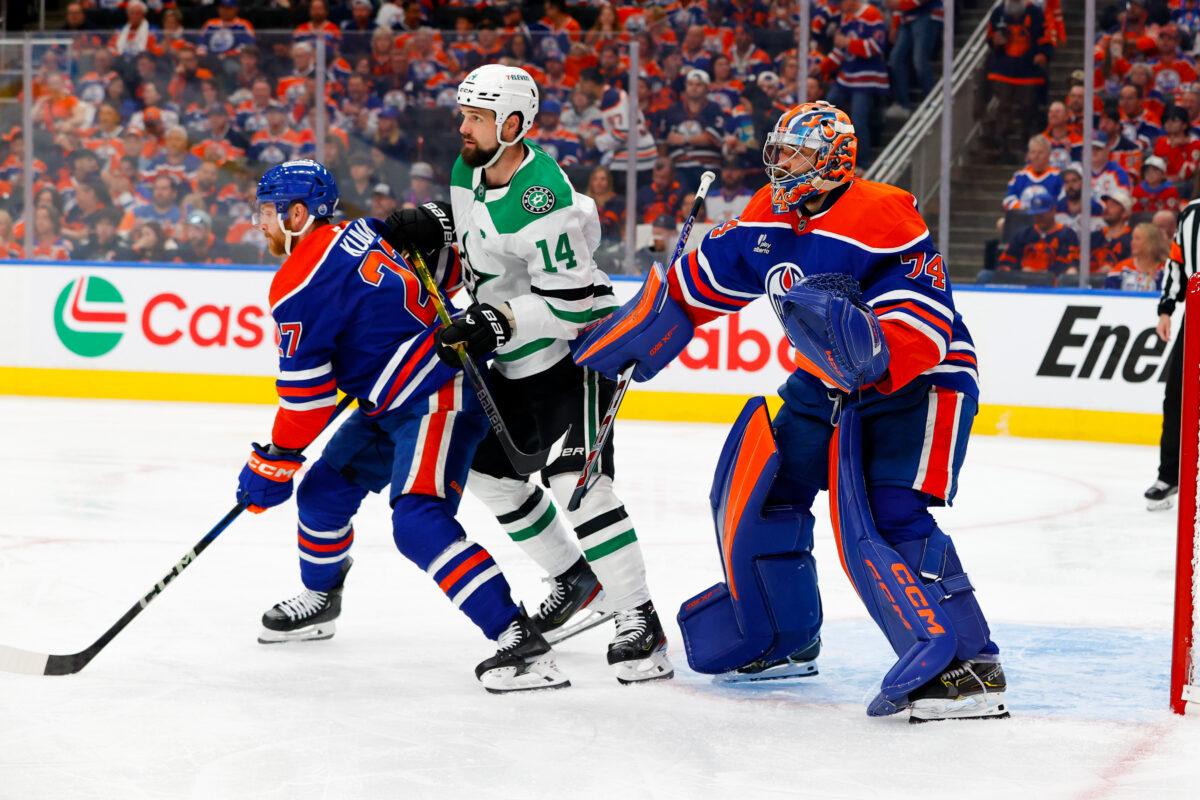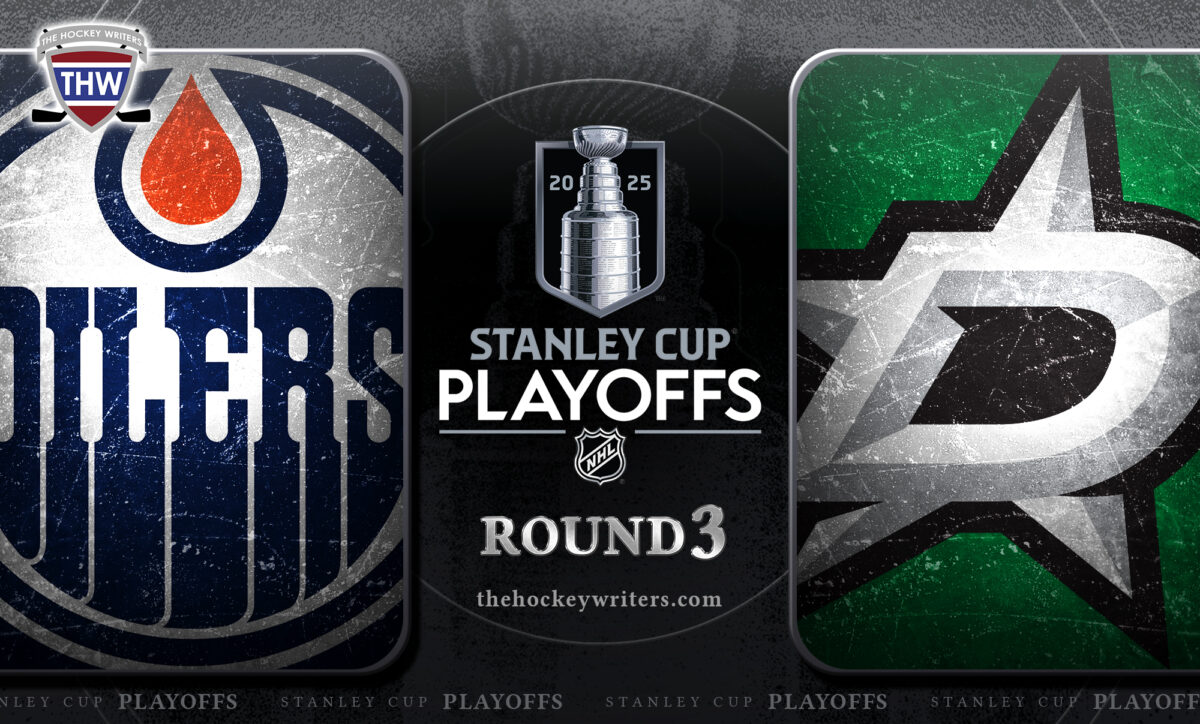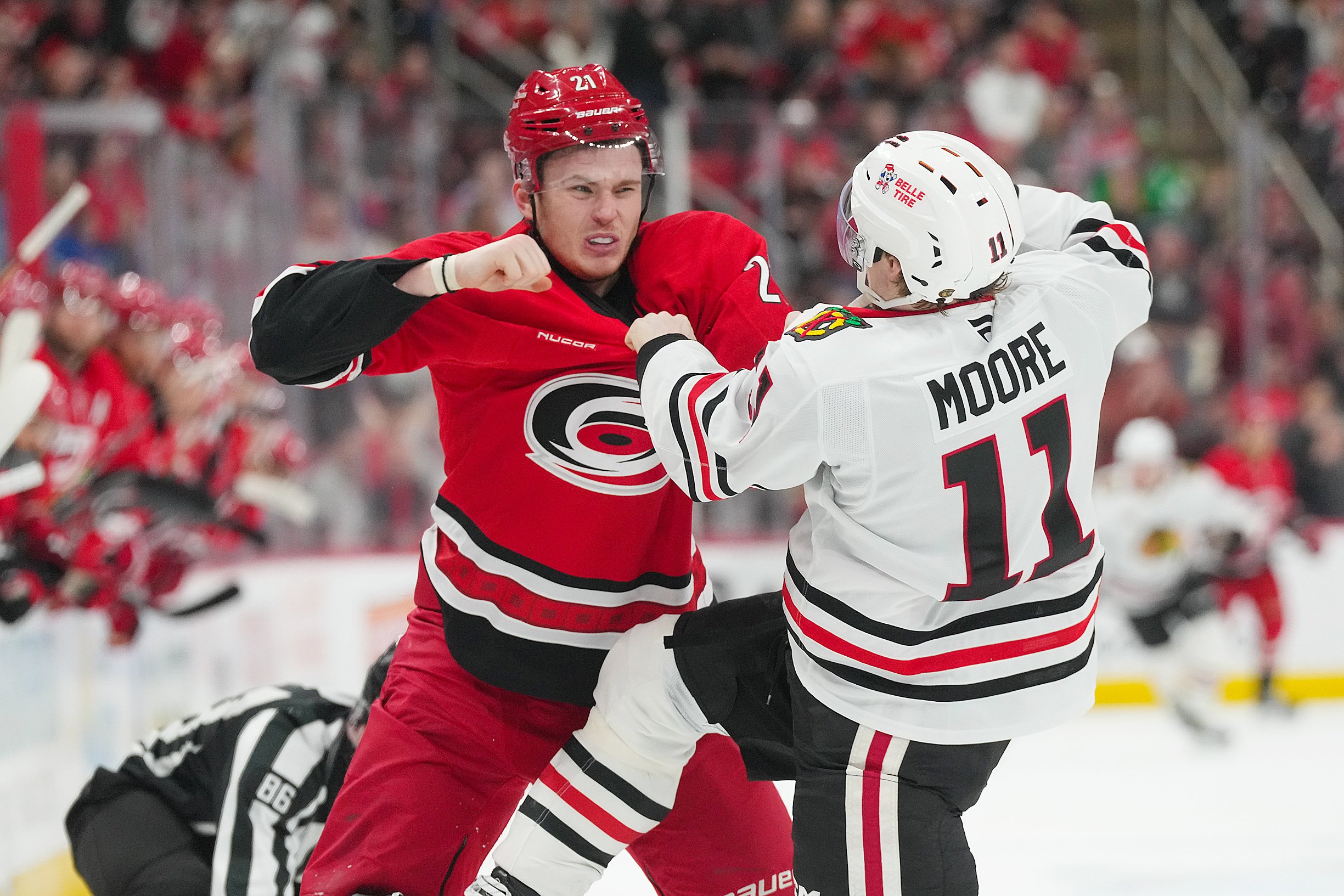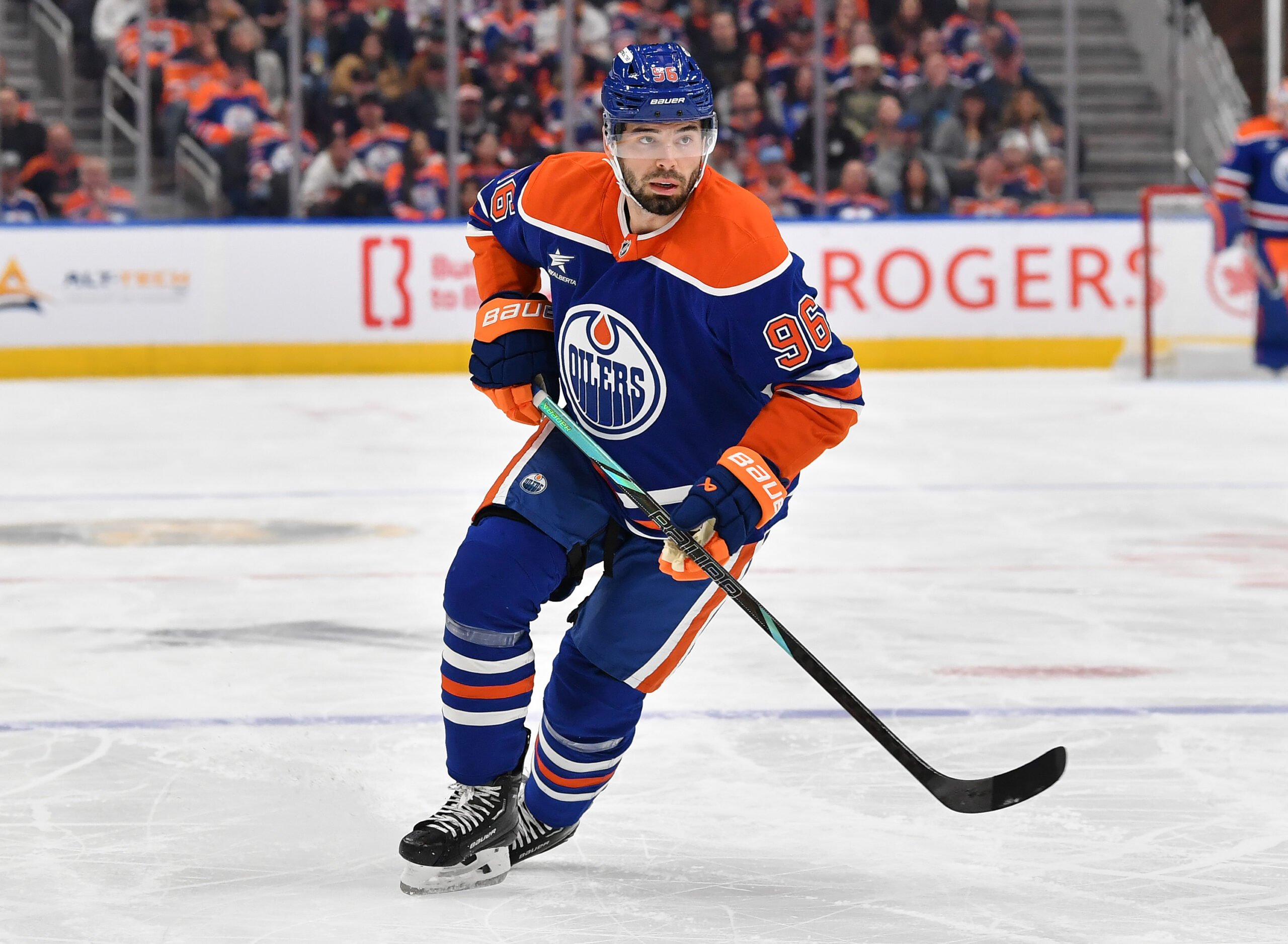The Dallas Stars enter Game 4 of the Western Conference Final against the Edmonton Oilers down 2-1, and in the opinion and perspective of many, have been outplayed for the majority of the series. Like any game or series in the playoffs, it’s all about riding or surviving the waves. The Stars have had trouble surviving the waves the Oilers have made, and have had a hard time creating any of their own.
Related: 2 Takeaways From Stars’ 6-1 Game 3 Loss
In Game 1, the Oilers controlled every second of the first 40 minutes but couldn’t stay out of the penalty box in the final 20, and the Stars took advantage of it. In Game 2, it was all Edmonton, and that’s all the analysis needed. In Game 3, however, the Stars played easily their best game of the series, especially in the first two periods, but there were a few key moments that sunk the their chances of winning.
Where there are failures, there are lessons. So let’s look at what went wrong in Game 3, and it can be applied to Game 4 on Tuesday night.
Lesson #1: Play With the Lead
The Stars are 9-7 through 16 games in the playoffs thus far. In 13 of them, the Stars have allowed the first goal. When they score first, they are 3-0, and when they don’t, they are 6-7. That shows a couple of things that are positive in nature. Firstly, when they open the scoring, they find a way to hunker down and leave the arena with a win. Secondly, when trailing to start the game, they have shown the ability to come back and grind out a win. Both outcomes are the same, but the former takes so much pressure off the skaters and the goaltender as the game unfolds.
They have yet to open the scoring against the Oilers, and it has resulted in the Stars chasing play for the majority of every game. Playing from behind against the Winnipeg Jets is difficult because of how the Jets approach the game defensively. Playing from behind against the Oilers is difficult because eventually, they will build on their lead. It’s inevitable.
“The biggest factor so far in the three games has been that we’re chasing every game. We’re behind every game, pushing for offense,” Dallas head coach Pete DeBoer said. “If you’re a couple feet out of position pushing for offense and the puck goes the other way with some of the guys they have over there on the ice, you’re in trouble.”
Lesson #2: Defensive Lapses Have to Be at a Minimal
The Stars played a much better first period in Game 3 than we saw through the first two games, and in the second period, they dominated much of the play and outshot the Oilers 21-7. Even though the Oilers came out and scored three goals in the third period, it was in the first 40 minutes that Game 3 was lost.
By now, we’ve all heard about the missed call heard around the world. In the second half of the first period, Oilers’ defenseman Brett Kulak shot the puck over the glass untouched for what should have been a penalty for delay of game. Shortly after, Evan Bouchard scored to make the game 1-0. Connor McDavid scored 36 seconds after that to make it 2-0.

The referees missed the call, and that is not debatable. However, the refs didn’t miss the call and then immediately gift the Oilers two goals. The Stars did that. For whatever reason, the Stars’ heads fell off defensively, and the Oilers took advantage in a big way. Players and fans have a right to be mad if they are on the Dallas side of this missed call. That still doesn’t let the players off the hook for mailing it in for 38 seconds.
In the second period, the Stars made a concerted effort to dominate the play. For 19 minutes and 41 seconds, Dallas controlled the period. Like we said, they outshot the Oilers 21-7 and seemed to attack the offensive zone in waves. Yet, at 19:41, their defense slipped, and it resulted in McDavid scoring his second of the game.
Goals in the first or last minute of a period are absolute back breakers. Whatever momentum the Stars created in that middle period, including when Jason Robertson made the score 2-1, was wiped out with less than 20 seconds left.
Lesson #3: The Oilers’ Big Boys Have Shown Up, Now It’s Your Turn
This has been a hot topic for the Stars for this entire postseason. Unless they’re from Finland, the Stars’ best scorers have simply not produced when it has mattered the most, if at all. In the regular season, the Stars were third in the NHL in goals per game with 3.35. In the playoffs, that number has dipped down to 2.56. Sure, they have found a way to get the job done, but the deeper they go, the less likely that will continue.
Mikko Rantanen (21 points), Roope Hintz (11 points), and Thomas Harley (11 points), are the only players who have 10-plus points. Moreover, they are the top three in goals, with nine, five, and four, respectively. Mikael Granlund is tied with Hintz for second on the team in goals, and Harley is in a three-way tie with Tyler Seguin and Wyatt Johnston for fourth. After those players, the next highest goal total is one, in which 10 different players are technically tied for fifth. Those players include the likes of Robertson (who has only played nine games), Matt Duchene, and Mason Marchment.
Related: 2025 Stanley Cup Playoffs Conference Finals Hub
On the flip side, the big boys for the Oilers have shown up in spades. Edmonton has six different players who have hit 10 points or more this postseason. They are all players that you would expect: McDavid, Leon Draisaitl, Bouchard, Ryan Nugent-Hopkins, Zach Hyman, and Evander Kane. Draisaitl and Bouchard lead the team with six goals. After that, they have five players tied for second with five goals. In total, 18 players have at least one goal, and the four that don’t have been in the press box for most of the playoffs.
The point here is incredibly simple. Yes, McDavid and Draisaitl are on a roll and doing their thing. But this offensive production that the Oilers are showing us is by committee. It’s not the “McDraisaitl Show”. Everyone is doing it. The Stars simply have not had that all postseason long.
The Time Is Now
The Stars love a long series. They’ve shown that a lot over the course of their three-straight trips to the Conference Final. Not once in this stretch have they won or lost a series in fewer than six games. So, on the one hand, if they win tonight, they are on track for another long series, one in which they have home ice. If they lose, this very well could be curtains by the end of the night on Thursday.
Let’s let DeBoer finish our appetizer for Game 4.
“I think there’s belief in our room. For me, there’s good signs in our game. If we can keep bringing that game to the rink, I like our chances of coming back in this series.”




